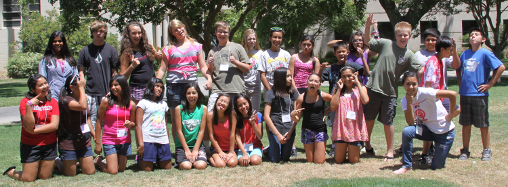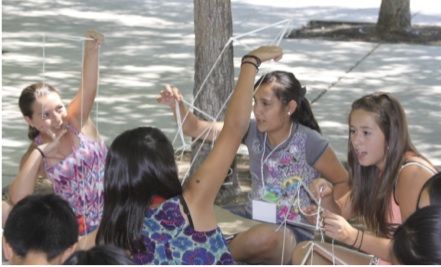Department of Mathematics
Summer Academy in Science, Technology, Engineering & Mathematics, 2026
Monday, June 22 through Friday, June 26, 8:00 am - 3:00 pm

The Department of Mathematics at California State University, Fresno in collaboration with San Joaquin Valley Mathematics Project (SJVMP) and Mathematics and Science Teacher Initiative (MSTI), offers a unique opportunity for motivated elementary, middle, and high school students to experience a challenging and enjoyable learning opportunity.
Interested elementary and middle school students are invited to apply for this intensive, fun-filled, learning experience.

- Intensive learning experience through challenging tasks in an enjoyable environment.
- Hands-on learning through fun-filled activities and projects.
- Change the way you think and feel about mathematics and learning.
- Learn to use dynamic mathematical software and other visual creation software to explore mathematical concepts.
- Improve your reasoning and mathematics thinking skills.
- Earn a California State University, Fresno Certificate of Accomplishment.
- Meet new friends, expert teachers and university professors at Fresno State.
Elementary school STEM concepts
Build models for scientific exploration of the concepts of wind energy suitable for ages 9 - 12. Learn key mathematical concepts such as shapes, dimensions, measurements, angles, area, and volume. Investigate 3D objects and explore concepts through hands-on projects, activities, real life problems, and the use of technology, science and engineering. Appropriate for grades 4 - 6.
Middle school STEM concepts
Build models for scientific exploration of the concepts of wind energy suitable for ages 12 - 14. Learn key mathematical concepts such as mass, velocity, ratio, proportions, area, volume, and surface area, through hands-on projects and activities. Solve real life problems using technology, science and engineering. Appropriate for grades 6-9.
High school STEM concepts
This workshop is designed for High School students who are interested in learning Science, Technology, Engineering, and Mathematics (STEM) concepts in more depth than they are discussed in the regular high school curriculum. Students will be learning these concepts through debate-style discussions, hands-on projects, and activities, designed by college professors and expert teachers. Students will explore Wind Energy, transformational geometry through dynamic software, conduct experiments, and solve real life problems using mathematical concepts.
2026 Program Flyers
You can learn more by reading the elementary middle school program flyer.
You can learn more by reading the high school flyer.
Registration
Please complete the Google Form.
If you have questions, please contact:
Dr. Rajee Amarasinghe
Email: ramarasi@mail.fresnostate.edu
Phone: (559) 278-4136